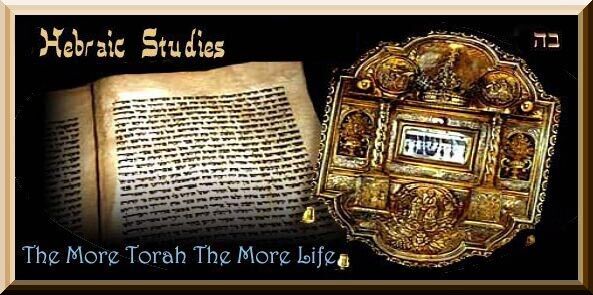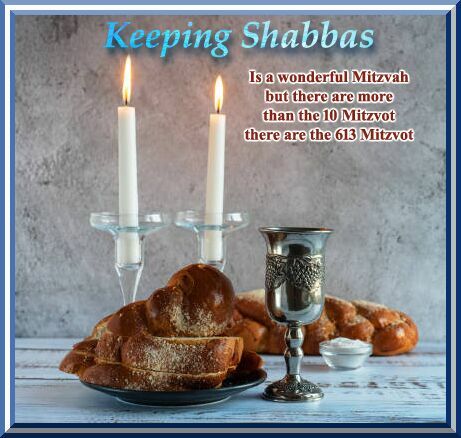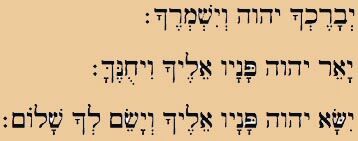Hebraic Studies
Use Google Chrome for this Web Page to load perfectly!

Please do NOT visit
this site on Shabbat or on a
Please Note: On this site I will show the four letter
blessed *“Memorial
Name” of the Almighty in Ivrit - ![]() - Y-H-V-H, which we usually pronounce as “Adonai” or “HaShem”.
- Y-H-V-H, which we usually pronounce as “Adonai” or “HaShem”.
*“This is My Name forever,
and this is My memorial to all generations.”
Shemot - Exodus 3:15.

The verses below are taken from the JPS version, being the “Jewish Publication Society” from their English version.
Some explanations (clarifications), names and the “Memorial Name” in Hebrew has been added.
Our 613 Mitzvot
For there are not just 10 Commandments
With Rabbi Reuven
Ben-Avraham.
Part One
- Tell me More about the Mitzvah?
One often hears the Jewish saying, “It’s a mitzvah!” usually referring to a charitable, beneficial act performed by someone. However, the Hebrew word mitzvah does not mean “a good deed” in that sense.
Mitzvah literally means “commandment.” In fact, Jewish tradition understands that there are exactly 613 Mitzvot (being the plural of mitzvah) derived from the Torah. These are listed into 248 “positive” things we were required to do, and 365 “negative” things we should not do). To view a complete listing of these Mitzvot, you will find a link at the bottom of this page.
Of course these Mitzvot are not simply just “good deeds,” for example, to refrain from murdering or stealing. And similarly, the Mitzvot that deal with feeding the poor, acting kindly to the stranger, or observing the Sabbath are much more significant in the Jewish tradition than mere divine suggestions on how to be good. Mitzvot are commandments, traditionally understood to come from Elohim and are for us the Jewish people to observe.
Those of us who live in the Western world are often uncomfortable with the idea of being “commanded” to do something. Sadly the modern human being has that feeling that we are being deprived of rights. And what we can do and to choose how we behave. Well, the Torah says that when Elohim, blessed be He, gave the commandments, Elohim declared:
“Behold, I set before you this day a
blessing (for observing the Mitzvot) and a curse (the posible punishment
for failing to observe the mitzvot): the blessing, if ye shall hearken unto the commandments of ![]() your Elohim, which I command you this
day” Davarim –
Deuteronomy 11: 27-27 (JPS version of the Torah).
your Elohim, which I command you this
day” Davarim –
Deuteronomy 11: 27-27 (JPS version of the Torah).
It seems that even Elohim recognized that ![]() - B’Nei
Yisrael - The Children of Israel had a choice in the matter and was clearly
hinting at the right choice.
- B’Nei
Yisrael - The Children of Israel had a choice in the matter and was clearly
hinting at the right choice.
But why should the Israelites have bothered to
accept and observe the mitzvot? Considering the many
great miracles Elohim had done rescuing B’Nei Yisrael from slavery
in
And it is not just the 613 Mitzvot that we are talking about! Even after the historical era of the Torah/Tanakh, generations of rabbis continued to update, adapt, and generate new, more modern commandments - all understood to be derived from the original 613 in the Torah. Today, we Jews no longer practice animal sacrifices or give agricultural gifts to a hereditary class of priests, yet there are modern Mitzvot that deal with questions relating to organ donation, the kashrut of organic fruits and vegetables. Mitzvot deal with every aspect of how one should go about leading a Jewish life.
Remember it is very important that we study
the blessed Torah because Torah study leads us to be stronger, which will lead
us to the observance of upholding the Mitzvot as I
have covered, as well as the other Mitzvot, such
as the “Aseret Hadibrot” - ![]() – The Ten Commandments.
– The Ten Commandments.
![]()
The Torah generally explains that we the Jewish people should observe the mitzvot simply because Elohim, blessed be He, commanded us to do so, or because of the potential negative consequences that would result from non-compliance. However, some other thinkers have endeavoured to prove that the Mitzvot are all completely rational, logical actions which any moral and ethical people would welcome. Still others claim that the commandments actually improve us as human beings, refining us as upright and just people, or that doing Elohim’s commandments actually has a cosmic effect upon the spiritual fabric of all creation. And some thinkers even reject the importance of asking this question entirely, arguing that the only legitimate reason for the performance of mitzvot is in order to obey Elohim’s commandments and fulfill our part in the covenant between Elohim and the Jewish people.
Some people observe the Mitzvot because it helps them to identify and feel a part of the Jewish community, others because they believe themselves to be commanded to do so, and still others simply because it is pleasurable, a joy, to celebrate the Jewish holidays and home rituals. But whatever reason motivates someone to observe the commandments is, in our tradition, less important than the actual performing of the Mitzvot themselves: One might say that the “deed” is more important than the “creed.” That is, how we behave in this world, towards our fellow human beings and the world we live in, is ultimately of great importance and in the final analysis, the Mitzvot will always be a uniquely Hebraic approach to living a holy and a good life in this world because we love our Elohim, and we desire to please Him!.
“And it shall come to pass, because ye
hearken to these ordinances, and keep, and do them, that ![]() thy Elohim shall keep with thee the covenant
and the mercy which He swore unto thy fathers, and He will love thee, and bless
thee, and multiply thee”
thy Elohim shall keep with thee the covenant
and the mercy which He swore unto thy fathers, and He will love thee, and bless
thee, and multiply thee”
View the 613 Mitzvot Page
I pray that your world will stand on three
things: 1. on Torah, 2. worship of ![]() Elohim, blessed be
His Sanctified Name, and 3. loving deeds of kindness and your reward
will be abundant!
Elohim, blessed be
His Sanctified Name, and 3. loving deeds of kindness and your reward
will be abundant!

May … “![]() bless thee, and
keep thee;
bless thee, and
keep thee;
![]() make His face to shine upon thee, and be gracious
unto thee;
make His face to shine upon thee, and be gracious
unto thee;
![]() lift up His
countenance upon thee, and give thee peace”
lift up His
countenance upon thee, and give thee peace”
Return to our MAIN PAGE
or go to our Main Index
![]()

![]() - Y-H-V-H, which we
usually pronounce as “Adonai” or
“HaShem”.
- Y-H-V-H, which we
usually pronounce as “Adonai” or
“HaShem”.
*“This is My Name forever,
and this is My memorial to all generations.”
Shemot - Exodus 3:15.
-hebraicstudies.com-

